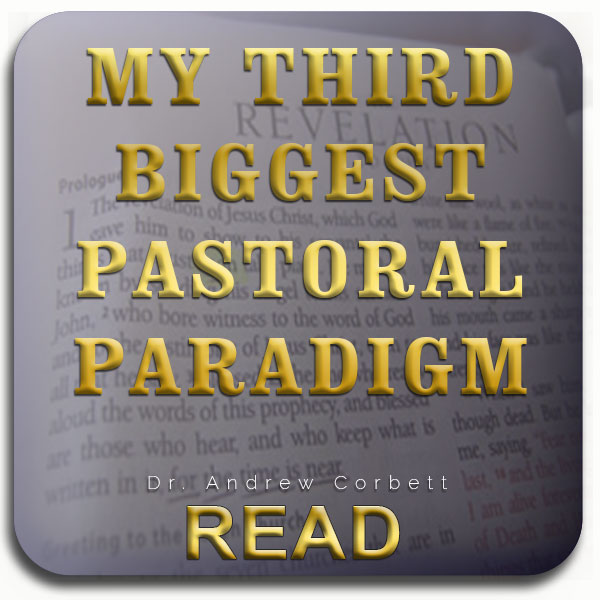
by Andrew Corbett | Mar 3, 2018 | Eschatology |
The End. That’s what the Greek word “eschaton” means. But a question that some are now asking is, “The end of what?” Up until recently most Christians would have said- the world, but now good Biblical scholarship is shedding greater light upon this highly controversial word and revealing that most of us may have been wrong!
When I went to church as a young boy, ‘End Times’ teaching was all the rage. Afterall, there were wars in the Middle East, famines in Africa, natural disasters in Asia, and economic struggles in Europe and America. There were conspiracy theories, global uncertainty, a worldwide fuel crisis, and the emerging cashless society. All of these things were apparently predicted in the Bible many thousands of years ago as being the last signs before the end of the world. As the last three decades have unfolded however, it has become obvious that none of these things have led to the end of the world, and now most people realise that the Bible doesn’t even make reference to them – let alone pinning the triggers for the end of the world upon them! With so much error in this speculation it’s little wonder that many Christians have put eschatology (the study of ‘final things’) either in the too-hard basket or now regard it as not worth worrying about because nobody knows anyway.

by Andrew Corbett | Apr 21, 2017 | Eschatology |
For LEFT BEHIND to be true it has to invent it’s own set of rules for Bible interpretation. What most LEFT BEHIND fans may be shocked to discover is that the pivotal sections of Matthew and Revelation upon which LEFT BEHIND is based was fulfilled by 70AD! And it had to be since that’s what Christ said!
“Assuredly, I say to you, this generation will by no means pass away till all these things take place.”
Matthew 24:34 (NKJV)
The highly aclaimed atheist, Bertrand Russell, said this verse alone was enough to discredit both the Bible and Jesus Christ!

by Andrew Corbett | Mar 12, 2017 | Eschatology |
Preterism comes the Latin word “praeter” which means “past”. When it comes to understanding Bible prophecy all Christians are Preterists to one degree or another. It is only logical and reasonable to examine the past to see if a prophecy has already been fulfilled. Most Christians would acknowledge that Isaiah 7:14 describing a virgin giving birth has been fulfilled in the past. But not all Christians would agree about the nature of prophecies relating to Christ’s “second coming”. Preterists argue that all of the prophecies relating to Christ’s return (as described in Matthew 24) have already been fulfilled. This contrasts with two other schools of prophecy interpretation.
Essentially there are then three general schools of eschatology:

by Andrew Corbett | Oct 5, 2015 | Bible Prophecy, Eschatology |
Who is the man identified in The Book of Revelation with the number, “666”? This article sheds light on this controversial question. I grew up in a church where regular Bible-prophecy teachers hinted that they knew the identity of the coming ‘Antichrist’. This man, was, according to these teachers, also referred to in Scripture as “the Beast” and “the man of lawlessness”. It wasn’t until I started to realise that these teachers were not only guessing about this Antichrist, but pretty much everything else they taught was a guess as well, that I began to understand what the Bible really says about these things.

by Andrew Corbett | Sep 25, 2015 | Eschatology, Theology |
As I reflected on my recent 20th pastoral anniversary of Legana Christian Church in 2015, I’ve had cause to reflect on three of my most significant pastoral paradigm shifts. I think I was about 17 years of age when I approached my then pastor, Joseph Bowes, to talk about the growing sense of God’s call on my life to pastor. I had assumed that all young men about that age felt a similar call. Pastor Bowes informed me that this was not the case. It was around this time in the 1980s that I first met Pastor Trevor Chandler who had become an annual visitor to our Geelong church (as he came down from Queensland to Victoria for INTERMIN). But this time (the 1980s) was a bizarre time for Bible Prophecy pundits. It was Trevor Chandler who first sowed the seeds into my soul to investigate rather than blindly accept Dispensational Futurism (which was the predominant view in most Evangelical and Pentecostal churches at the time). And I did.

by Andrew Corbett | May 6, 2014 | Bible Prophecy, Eschatology |
The Bible’s Prophetic Program Culminates With “a new heaven and a new earth.” What might this mean? What are the implications of this? Does it have bearing on how we live today?
¶ Then I saw a new heaven and a new earth, for the first heaven and the first earth had passed away, and the sea was no more.
Revelation 21:1
But what does this mean? The implications of how we understand this Bible prophecy are slightly enormous. I was recently discussing with another pastor some issue of concern we shared about a potential environmental hazard. I ventured that we needed to take some action. He responded by expressing doubts that a pastor could achieve any change. Then he said, “…besides, this earth will soon pass away soon since the Bible says a ‘new earth’ is coming, so ultimately it doesn’t really matter!” How we understand what the Bible means when it refers to a ‘new heaven and a new earth’ may well determine how we treat our ‘existing’ earth and the type of legacy we will leave for generations to come.






